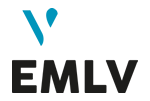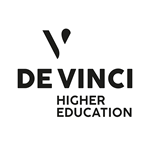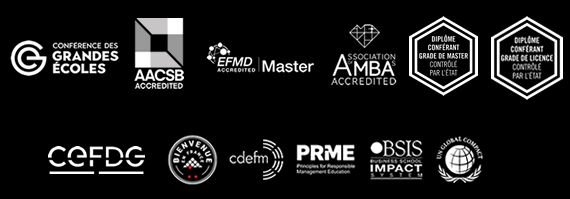Francesco Paolo Appio is Associate Professor of Innovation, Researcher and Head of the Business Group at EMLV. Portrait of an artist who became lecturer and researcher.
Life had even more imagination than Francesco Paolo Appio. Born and educated in Italy, his MSc thesis took him to Denmark and his invitations as visiting researcher to the MIT and to the Katholieke Universiteit Leuven. And as Paris is always a good idea, this is where he has lived and worked since March 2016.
Why keeping to one discipline only?
I consider myself an interdisciplinary researcher. Accordingly, my research interests span several topics namely, in-depth investigations of the determinants of scientific breakthrough discoveries and radical technological inventions, the microfoundations of process innovation, type and role of search mechanisms for innovation, and last but not least Smart Cities. About the latter, I recently launched a call for papers on ‘Understanding Smart Cities: Innovation Ecosystems, Technological Advancements And Societal Challenges’ for the journal Technological Forecasting and Social Change, with the idea of building up a platform upon which many researchers, with (possibly) heterogeneous background, tackle the fundamental problem of (re)thinking the city of the future.
As you can notice, a variety of topics analysed from a variety of perspectives.
At the head of the Business Group
Since March 2016, I am part of EMLV as Associate Professor of Innovation mainly teaching at Master level (4th and 5th year students). Since June 2016, EMLV offered me the tremendous (though challenging) opportunity to become Head of the Business Group. Since then, my role focuses on reorienting the research activities at the Business Group, emphasizing both quantity and quality, consistently with the EMLV mission.
The Business Group is an interdisciplinary group of passionate and dedicated people who carry out valuable research and transfers it to students through innovative teaching courses.
By fostering national and international collaborations, the Business Group provides both society and scientific communities of reference with relevant high-quality research. Over the last few years, the Business Group has increased its reputation, hosting top scholars for research seminars as well as attracting talented national/international researchers. The Business Group’s research activities focus mainly on four areas: Innovation and Entrepreneurship, Marketing and Sales, International Relations and Human Resources Management.
Becoming a researcher
Did I want to become a researcher growing up? No! Instead, I dreamt of becoming an artist. Back in the days, I did the High School of Fine Arts in Italy and I was really persuaded I could contribute to the art world with my creative work. But then came the day when, while listening to the history of the multifaceted nature of the Renaissance genius of Leonardo da Vinci (as fate would have it!), I decided to challenge myself by starting playing with hard science: mechanical engineering. After three years, I got bored and switched to Management Engineering where I found the right balance between rigour and creativity. In the last two years of my university studies I discovered how fascinating and complex was the world of Innovation.
Five years to shape a researcher career
The idea to become a researcher was still far from getting concrete until I had the tremendous opportunity to carry out my MSc thesis at the Management Department of the Technical University of Denmark.
My supervisor was simply enlightening and introduced me to the incredible world of Research. That was the turning point.
Afterwards, I spent five years in Pisa doing first a PhD in Management at Scuola Superiore Sant’Anna, and then a postdoc at the Faculty of Engineering of the University of Pisa. Those five years shaped my entire career: I learnt how difficult is to become a good researcher, how even more difficult is to keep the quality up. Researching requires a rigorous – yet creative – posture, there is no space for mediocrity; lifelong learning, intellectual freedom, and dedication are other key ingredients. Being a researcher means your brain never stops thinking about new ideas … even when I sleep. Sure enough, I always pretend a lot from myself…sometimes it is too much, but that’s how it is.
But then Leonardo da Vinci knocked again on my door and I let him entering my life again: this is how I came to EMLV.
It can’t be all work and no play
I am a bibliophile, reading at least three books per month regardless of the genre (novels, poems, essays, art, science, etc.). Although some of them are quite distant from my job, I can constantly spot unexpected connections with my research. This allows me to stay productive and enjoy my daily work.
Also, I love listening to classical and jazz music, but I devote 80% of my time to progressive rock from the ’60s-early ‘70s (Led Zeppelin above all!).
I know some of my students play some instruments. Well, me too! I play the piano and I would love to play with them … maybe in a duo, quartet, or a rock band!
My favorite quote is from Eduardo Galeano, an Uruguayan journalist, writer and novelist:
“Utopia is on the horizon. I move two steps closer; it moves two steps further away. I walk another ten steps and the horizon runs ten steps further away. As much as I may walk, I’ll never reach it. So what’s the point of utopia? The point is this: to keep walking.”





















